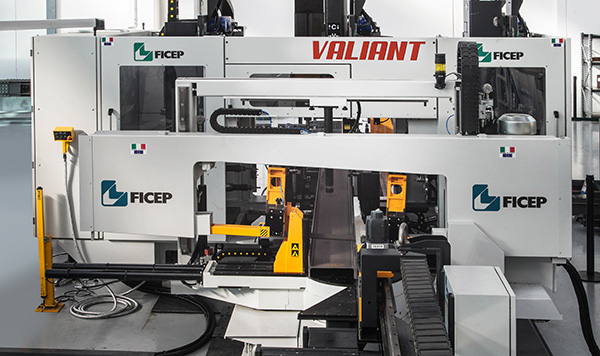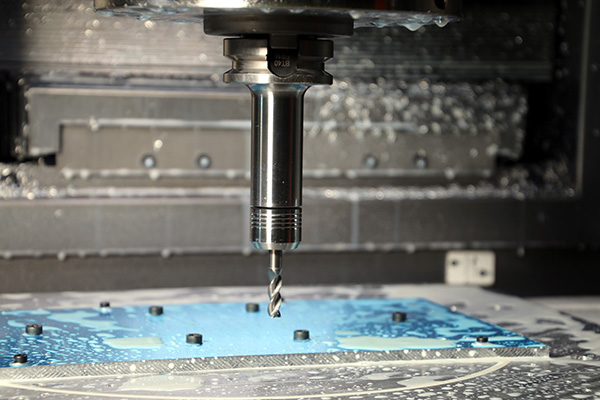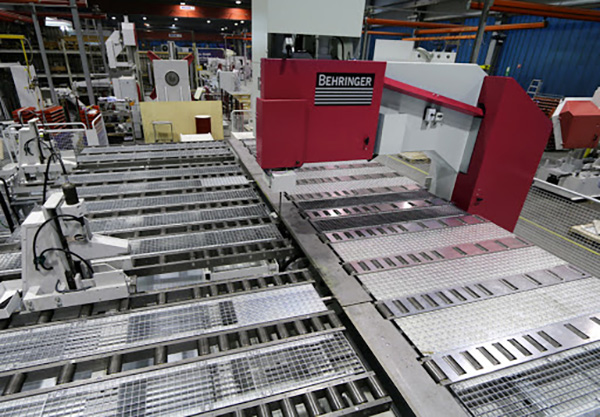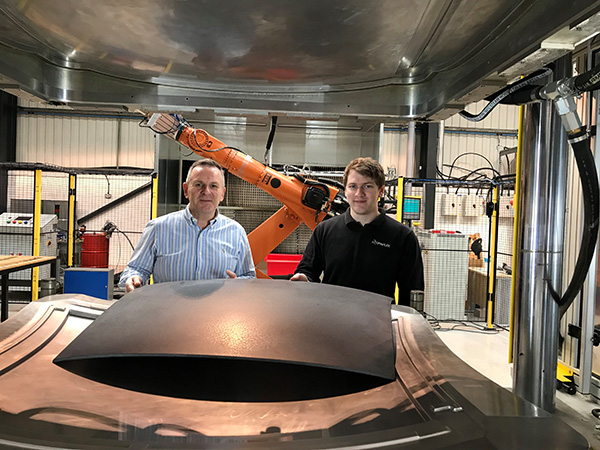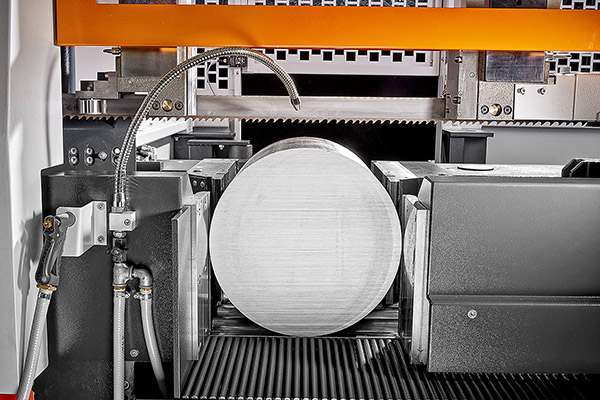Founded by managing director Wayne Bouchier at the youthful age of 25, Letchworth-based Maztech Precision Engineering (MPE) today runs four Mazak machining centres, which include a VTC-530C, an i-500 and the jewel in the crown, an i-300 AWC five-axis, 32-pallet machine that runs unmanned around the clock.

However, the journey to acquiring high-end machine tools was certainly an uphill struggle, as the entrepreneur started the business with little more than loans, family support, some good faith from Mazak, a sprinkle of luck and truck loads of hard work and determination. Six years later, the combination of hard work, research and experience has been integrated with some innovative business nous that has seen Maztech invest in machine tools from Mazak, high-end CAM software from Open Mind and, of critical importance, high-quality cutting tools from Industrial Tooling Corporation (ITC).
Recalling the formation of the company and how the relationship with the Tamworth cutting-tool specialist transpired, Bouchier says: “During the early years of the business we relied largely upon one prominent tooling vendor, as well as a few smaller vendors. This combination gave us access to a range of products that would suit our initial needs. The primary supplier continually promised us a vending machine, which never materialised. Simultaneously, the price of tooling kept fluctuating. As a small subcontract manufacturer, we sometimes factor the cost of tooling into our work, so ever-changing prices were unacceptable. Instead of inviting every cutting tool sales rep to our site to conduct countless time-consuming trials, we asked 10 vendors to work with us on one single job.”

Applying this novel and efficient route to selecting the most appropriate tooling vendor, Maztech offered up an EN24 component for the MoD that was required in a volume of 300-off. Utilising one of its five-axis Mazak machining centres and CAM software from Open Mind, each steel cover component required over 10 minutes of continuous trochoidal roughing. So, Maztech asked the 10 invited vendors to supply a couple of their preferred five-flute solid carbide end mills to test. Each participating tool was run at identical speed and feed parameters that had been agreed with each of the 10 cutting-tool engineers from the various suppliers.
Bouchier says: “Every company claims to have the best cutting tools, so we put that theory and the confidence of the reps to the test. This was a genuine test of carbide quality and the performance of tool geometry. I ran every single tool until it broke and then recorded the data and tried the next tool – that was the fairest way of conducting the trials. The contrast in performance was staggering. We had one end mill that lasted just 30 seconds. However, most of the leading names in the industry machined five, six or seven parts, with some of the best performers reaching 10 finished parts before failure. The second-best tool managed to cut its way through 14 parts before failure, which we considered very good performance when measured against all the previously tried brands. However, the ITC tool was in a completely different league: the ITC Widia 577C five-flute solid-carbide end mill blew everything else out of the water.”
The ITC Widia 577C completed 25 parts before performance started to diminish. However, despite the deteriorating performance, the end mill would not break.
Following this testing process, Maztech introduced ITC Widia solid-carbide end mills to other components at its facility.
“Over 20% of our work is EN24 and another 20 to 30% is stainless steel, so we rapidly introduced ITC’s solid carbide tools to all our steel parts,” says Bouchier. “Based on the performance of the ITC Widia 577C, we felt confident that we could roll them out across our machine shop. I probably didn’t give ITC the ‘fairest of opportunities’ in the early days, but the 577C trial changed all that.

“The next step was to try the aluminium cutters and it has just grown from there,” he adds. “In the past couple of years we’ve implemented ITC’s deburring tools, thread rolling taps, ball-nosed end mills, through-coolant drills and much more. We only use solid-carbide tooling, and ITC now supplies 99% of our cutters. The remaining 1% will be tools that ITC do not manufacture. Our decision to work almost solely with ITC has been fully justified. We used to spend upward of £3000 per month on cutting tools, but ITC has helped us to half this cost. While a 50% cost reduction is great, what’s more impressive is that we’ve doubled the size of our business, our productivity and our output in the last two years since introducing ITC. So, in real terms, without ITC, our tooling costs would be four to five times higher than what they actually are today.”
One reason behind ITC now claiming 99% of the tooling supply at Maztech is the service.
“We machine 1000 steel blocks every six weeks for an aerospace customer and this job requires the rough machining of 2” cube sections,” says Bouchier. “We were using a long-series, five-flute 10 mm diameter solid-carbide end mill with a 42 mm flute length and chip breaker from our previous, unreliable supplier. At that point, ITC didn’t have a 42 mm flute tool with the dimensions we required, but they produced one for us. The performance of the ITC five-flute 10 mm diameter tool was comparable with that of the previous tool, so ITC revised it to extend tool life from 40 parts per tool, to 50.”
Looking to the future, Maztech is venturing into the realms of indexable cutting tools. Again, ITC has been on-hand to support the company.
“We’ve tried a few of the ITC indexable tools and had some good results, especially with the Widia VSM490,” states Bouchier. “We have been cutting stainless steel dry with a 50 mm diameter five-insert VSM490 face mill and that has been very good. We did a few trials from numerous suppliers and found that the Widia VSM490 face mill from ITC halved our tool spend on the inserts, and made an improvement to tool life. Basically, we were taking a 5 mm deep cut in stainless 304 and the ITC indexable reduced tooling costs by 15% and improved tool life by over 20%. This is a big saving on a job that is produced in batches of 150-off at least four times a year. The first-op machining time is 50 minutes per part using the VSM490 face mill, with a second op that requires another 40 minutes of machining, so ITC is again delivering huge benefits.”
For further information www.itc-ltd.co.uk







